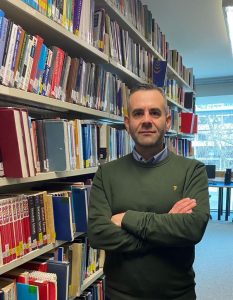NHST Education can provide speakers living with HIV that will present their personal testimony of the past and hope for the future.
We can also provide webinar sessions for teaching institutions and corporate bodies that explore the history of HIV through the 1980s and 90s. Hear about people’s personal experiences, including through photos and film.
We want people to be informed and understand some basics about HIV in today’s world too, and these points are included in most NHST educational sessions.
HIV used to be a death sentence. Now it is a chronic, manageable condition and the UK aims to eradicate new infections by 2030. Education will play an important role in achieving this aim – both in terms of prevention and living well with HIV.
Our sessions are tailored to each audience but will answer:
- What is HIV?
- How HIV is transmitted?
- What was it like to be diagnosed with HIV before there was treatment?
- What does living with HIV today look like?
- What is U = U?
HIV remains, despite all the medical advances, a global challenge. A greater understanding of HIV can help destigmatise the virus, contribute to the wellbeing of those living with HIV and to those who may be diagnosed in the future.
Get in touch to organise a session
Find out how our archive is being used
Our archive of filmed interviews has already been used by broadcasters, educators, researchers and students.
Surprisingly, up to now there has been relatively little publicly accessible material about HIV and AIDS in the UK available to the general public that bears such rich and raw testimony. We are pleased therefore that our archive is able to compliment the various oral histories available through other organisations.
If you are studying this important period of history please feel free to access our collection through the LMA.
Please see below how our work is enriching the exploration and study of this important history:
The NHST and their archives have been indescribably useful to my studies. My research is on Lesbians in palliative AIDS care and the use of the voice as archival material so going through their wealth of recorded interviews was invaluable. Not only that, but through the NHST I was put in contact with participants with whom I could conduct my own interviews and the organisation was incredibly friendly and supportive in this. Ultimately though, the archives are a wonderful and emotive personal resource for me to learn about my queer roots!
Jess

The NHST archive is an invaluable resource for researchers as it provides access to primary data that are not readily available elsewhere. In conducting my own research, the collection of filmed interviews has proved to be a unique repository of historical, cultural and social firsthand accounts that challenges conventional understandings of the politics of HIV/AIDS. Both the personal, and frequently autobiographical, exploration of witnessing, as well as the narrative mode of filmmaking—atypical of the mainstream documentary form—give extraordinary insights into the historiography of AIDS. Profoundly moving, this archive is a crucial contribution for understanding HIV/AIDS as an ongoing crisis rather than part of history.
Fernando
Love, Loss & Life audiobook
To compliment the publication of our book Love, Loss & Life the NHST has produced an audiobook of all 22 stories which are narrated by the wonderful actor Anita Dobson. The book can be accessed through most audiobook platforms for download. For full details click here.
We are also making a number of these powerful stories available free of charge through a series of podcasts (search for Love, Loss & Life wherever you get your podcasts, or click here).
Stories capture the breadth and depth of the community affected by HIV and AIDS, including George Hodson who can legitimately claim to have been there at ‘Ground Zero’, living in San Francisco when the very first cases of HIV/AIDS began to appear among the gay community in America in the early 1980s, or Flick Thorley, a nurse who has dedicated her life to the care of patients with HIV – and the extraordinary experiences she encountered. An often forgotten group of people living with HIV are haemophiliacs – learn more about the challenges this group have faced through Alan Burgess’s moving story.

